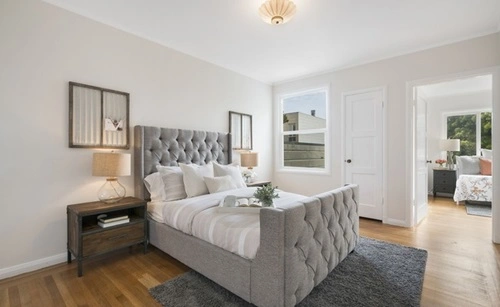No, it is not illegal to put cameras in your child’s room if done with appropriate intent, but there are significant legal and ethical considerations. Parents generally have the legal right to monitor their minor children in their own home. However, this right comes with limitations to protect the child’s privacy and ensure compliance with state and federal laws.
Legal Considerations for Cameras in Your Child’s Room
Installing cameras in your home, including in your child’s room, is typically legal under U.S. law. Parents have broad discretion over how they supervise their children. However, there are legal nuances depending on the circumstances, the child’s age, the intent behind the surveillance, and how the footage is used.
1. Parental Rights to Supervise
Monitoring for Safety
Parents often install cameras in their child’s room for safety-related purposes, such as:
- Monitoring infants or toddlers during sleep.
- Supervising children with medical conditions or special needs.
- Ensuring the child’s safety when parents are not present.
These uses are generally considered acceptable and fall within a parent’s legal rights.
Minors vs. Adults
The legality of monitoring changes when the child reaches the age of majority (18 in most states). At that point, surveillance without consent could violate privacy laws, as the individual is legally considered an adult.
2. Potential Legal Issues
Violation of Privacy Laws
Certain actions related to video surveillance may cross legal boundaries, even for parents:
1. Hidden Cameras: Secretly recording someone, even a minor child, in private spaces such as bedrooms or bathrooms could violate state privacy laws that protect against unlawful surveillance.
2. Audio Recording: If the camera includes audio capabilities, you may need to comply with wiretapping laws. Some states, such as California, require two-party consent for audio recording.
3. Use of Footage: Sharing or distributing recorded footage, especially online, could lead to legal consequences, particularly if it inadvertently violates child protection laws.
Inappropriate Monitoring
Excessive or unjustified surveillance, especially as the child grows older, may infringe upon their expectation of privacy. Courts may view such actions as invasive, particularly if they serve no legitimate purpose.
Federal Laws
The Children’s Online Privacy Protection Act (COPPA) and related federal statutes govern how data involving children can be collected and stored. If camera footage is stored on cloud-based systems, compliance with these regulations may be required.
3. Ethical Considerations
While legal in most cases, placing cameras in your child’s room raises ethical questions about privacy, trust, and the potential psychological impact on the child:
- Trust Issues: Over-surveillance may erode trust between parents and children, particularly teenagers.
- Developmental Concerns: Constant monitoring could affect the child’s sense of independence and personal boundaries.
- Consent: As children grow older, discussing the purpose of the camera and seeking their input may help mitigate feelings of intrusion.
4. When It Might Be Illegal
Recording in Private Areas
It is generally illegal to install cameras in areas where someone has a reasonable expectation of privacy, such as bathrooms or changing areas. Even parents must respect these boundaries.
Covert Surveillance for Non-Safety Reasons
Installing cameras for purposes that could be deemed malicious, voyeuristic, or unrelated to the child’s welfare may lead to criminal charges under state or federal laws.
5. Best Practices for Using Cameras
To ensure legal and ethical compliance:
- Have a Clear Purpose: Use cameras for legitimate safety or security reasons.
- Avoid Hidden Cameras: Be transparent about the presence of cameras.
- Respect Privacy: Avoid installing cameras in areas like bathrooms or spaces where privacy is expected.
- Secure Footage: Use secure storage methods to protect recordings from unauthorized access.
- Reassess Over Time: As children grow, reevaluate whether surveillance is still necessary.
Recent Legal Updates (2023-2024)
1. Enhanced Data Privacy Rules
States such as California and Colorado have updated laws to regulate cloud storage of surveillance footage, emphasizing the need to protect children’s privacy.
2. Clarifications on Wiretapping Laws
Several states, including Florida, have clarified that audio recording with cameras in the home requires consent from all parties involved, even minors in some cases.
3. Increased Scrutiny of Surveillance Technology
Congress has proposed additional measures to regulate the use of surveillance devices in domestic settings, especially those with internet connectivity.
FAQs About Putting Cameras in a Child’s Room
Q1. Is it illegal to put a camera in my child’s room?
Ans: No, it is generally legal for parents to install cameras in their minor child’s room, but there are limits based on privacy laws and intent.
Q2. Can I use hidden cameras in my child’s room?
Ans: While not explicitly illegal in all states, hidden cameras can raise privacy concerns and potential legal challenges, especially if used without a valid reason.
Q3. What about recording audio?
Ans: Audio recording laws vary by state. In two-party consent states, recording audio without the child’s consent may be illegal.
Q4. At what age should I stop using cameras in my child’s room?
Ans: There’s no legal requirement, but many parents choose to stop once the child demonstrates independence or when cameras are no longer necessary for safety.
Q5. Are there restrictions on storing footage?
Ans: Yes, ensure footage is securely stored and complies with state and federal data privacy regulations, especially if stored on cloud platforms.

